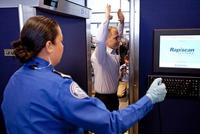-
GOP lawmakers urge Obama not to link Keystone decision to climate policies
Democrats who are uncomfortable with the Keystone XL pipeline have urged President Obama to consider attaching policies requiring cuts in greenhouse gases emissions to his approval of the project. Republican lawmakers are urging the president not to link approval of Keystone to climate change policies.
-
-
Administration more actively to support expansion of fracking
The Obama administration is leaning toward offering more active support for the expansion hydraulic fracturing, or fracking, despite the opposition of environmental groups.
-
-
AFL-CIO vows to fight Hatch’s amendments to immigration bill

Democrats on the Senate Judiciary Committee will try to persuade skeptical Democrats that Hatch’s changes to the immigration bill, which brought it closer to the preferences of the high-tech industry, are not necessarily bad for U.S. labor. The AFL-CIO does not agree, and vows to fight Hatch’s amendments
-
-
DHS debars scanner maker from government contracts

The Transportation Security Administration (TSA) has sent OSI Systems, the manufacturer of airport body scanners, a debarment notice which would prevent the company from receiving government contacts in the future. The notice was sent to the company after TSA determined that the company had failed to address security concerns about its scanners.
-
-
House will see floor battle today over Keystone XL pipeline
Republican and Democrats lawmakers are set to engage in a fierce battle on the House floor over the fate of the Keystone XL project. Representative Lee Terry’s (R-Nebraska) proposed legislation to allow TransCanada to start construction of the Keystone XL pipeline, which runs from Hardisty, Canada through seven states to Houston, Texas. The bill will come to the House floor today.
-
-
Senate panel reaches compromise on foreign workers
The Senate Judiciary Committee reached a compromise which would make it much easier for American tech companies to hire foreign workers. Most U.S. high-tech companies would not be required to offer tech jobs to Americans before they are able to hire foreign workers. The only companies required to do so are companies which depend on foreign workers for more than 15 percent of their workforce.
-
-
Senator Hatch champions tech industry’s priorities in immigration reform

As the Senate Judiciary Committee continues to consider the bipartisan immigration reform bill, both supporters and opponents of the bill agree that one senator has emerged as a key voice on the issue: the 79-year old Orrin Hatch (R-Utah). Hatch has emerged as a champion of the U.S. technology industry, and while he supports the broad goal of immigration reform, he insists on shaping the legislation so it addresses the priorities and preferences of the tech industry, priorities and preferences which he sees as essential not only for the health of the industry, but for the health of the U.S. economy more generally.
-
-
Social sites’ privacy practices “seriously deficient”
The privacy management of sixteen popular social networking sites, including Facebook and Twitter, is “seriously deficient,” according to a new study. Researchers found a disconnect between privacy statements and the site’s actual privacy controls.
-
-
U.S. to help protect private companies from malicious cyberattacks
The U.S. government said it will help protect private companies from cyber attacks. DHS secretary Janet Napolitano said a system is being developed which will monitor Internet traffic directed to critical infrastructure businesses and block attacks on software programs.
-
-
Cybersecurity framework for critical infrastructure: analysis of initial comments
On 12 February 2013 President Obama issued the “Improving Critical Infrastructure Cybersecurity” executive order, which called for the National Institute of Standards and Technology (NIST) to work with industry to develop a voluntary framework to reduce cybersecurity risks to the nation’s critical infrastructure, which includes power, water, communication, and other critical systems.
-
-
DHS advises Michigan State U on football stadium safety
By all accounts, Michigan State University’s basketball team has been doing better over the years than the school’s football team (just think Magic Johnson). The university wants to raise the profile of its football team, and is building a new, $24 million stadium — but DHS advised the university that the stadium’s north side stands are too close to the gas tanks and pumps which serve the school’s motor pool. The university is now moving the gas tanks to a new location.
-
-
Obama administration shifting cybersecurity legislative strategy

The Obama administration’s has shifted its cybersecurity legislative strategy. Rather than emphasize DHS-monitored regulations – an approach which stalled in Congress last summer because of Republican opposition — the administration is focusing on getting Congress to help promote the voluntary adoption by industry of standards being developed by the National Institute of Standards and Technology (NIST) following a February 2013 executive order signed by President Obama.
-
-
State agency imposes heavy fine on PG&E for San Bruno blast
The California Public Utilities Commission (CPUC) two weeks ago wrapped up its investigation of a 2010 gas pipeline explosion in San Bruno, California, and recommended that Pacific Gas and Electric (PG&E) pay $2.25 billion for its negligence, which led to the blast.
-
-
A “cauldron of events” has brought the nuclear industry to a halt
Until two years ago, people talked of a nuclear energy renaissance. Now the talk is about nuclear malaise. The Fukushima scare, the emergence of alternative energy sources as a result of fracking, and the lack of action on climate change – which means that limits on fossil fuels are not coming any time soon – have, in the words of one experts, brought the nuclear industry to a halt.
-
-
Increasing supplies of North American oil changing global markets
The supply shock created by a surge in North American oil production will be as transformative to the market over the next five years as was the rise of Chinese demand over the last fifteen, a new report says. The shift will not only cause oil companies to overhaul their global investment strategies, but also reshape the way oil is transported, stored, and refined.
-
More headlines
The long view
Factories First: Winning the Drone War Before It Starts
Wars are won by factories before they are won on the battlefield,Martin C. Feldmann writes, noting that the United States lacks the manufacturing depth for the coming drone age. Rectifying this situation “will take far more than procurement tweaks,” Feldmann writes. “It demands a national-level, wartime-scale industrial mobilization.”
Trump Is Fast-Tracking New Coal Mines — Even When They Don’t Make Economic Sense
In Appalachian Tennessee, mines shut down and couldn’t pay their debts. Now a new one is opening under the guise of an “energy emergency.”
Smaller Nuclear Reactors Spark Renewed Interest in a Once-Shunned Energy Source
In the past two years, half the states have taken action to promote nuclear power, from creating nuclear task forces to integrating nuclear into long-term energy plans.
